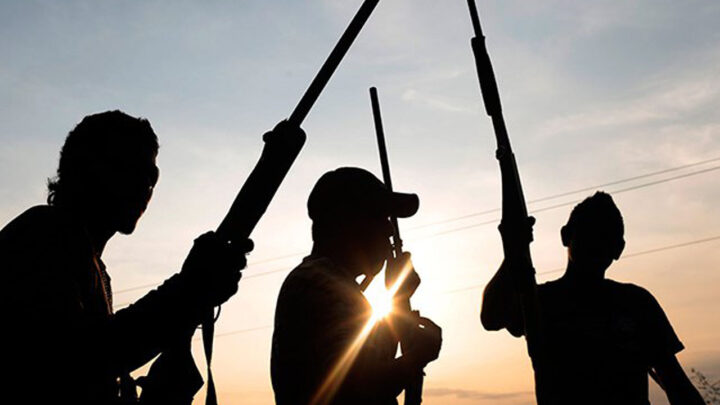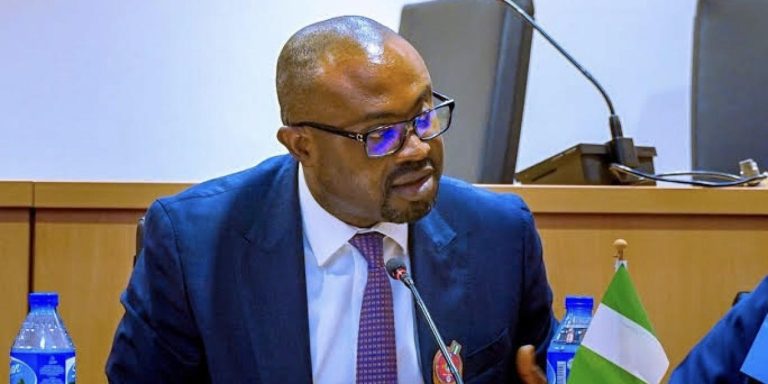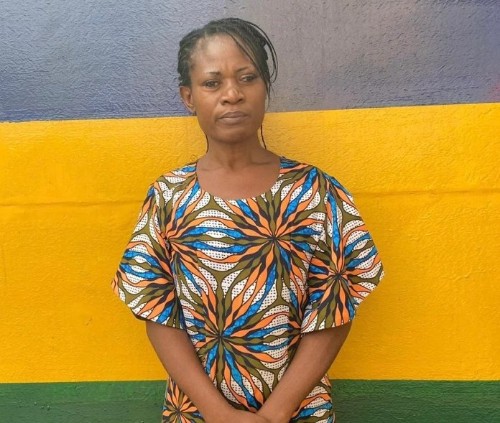The Secretary to the Government of the Federation, Senator George Akume, has rejected claims that northerners are opposed to the proposed Tax Reform Bills.
He stated that he had consulted with senior citizens, leaders, and religious figures from the region, all of whom expressed their support for the bills.
The bills, including the Joint Revenue Board of Nigeria (Establishment) Bill, 2024, the Nigeria Revenue Service (Establishment) Bill, 2024, and the Nigeria Tax Bill, 2024, have sparked widespread debate since their introduction in the National Assembly.
Speaking during a program on TVC News on Sunday, the SGF dismissed claims that the bills were aimed at the North.
He said, “People say it’s against a certain section. I come from that part of that section and I am 100 per cent supportive of these bills. I have spoken to quite a number of notable northerners and they’re not against these bills. These bills have nothing to do with any one section of this country. It’s not proposed against the north. I am also a northerner.
“There are others who are attacking the bills purely from the perspective of opposition politics, ‘It is coming from the party in power. Therefore, we have to attack it in order to gain support for 2027.’
“But the truth is I have also spoken to notable northerners. And they’re not against these bills. Some of them are religious people, leaders. Others are senior citizens of Nigeria from the North.
“So, my candid advice would be that the final analysis will be going to the National Assembly. And therefore, if they have any comment to make, they can put it down in writing. Or whenever the Assembly decides to hold a public hearing, they can make their views. But you said, no, let us go on protest.”
The SGF also emphasized that the bills were specifically designed to help the country’s poorer citizens.
“Those who earn less than N800,000 per annum are exempt from paying personal income tax. And it is also pro-growth. Those in small businesses with revenues below N550m will not pay company tax.
“And education, hospitals, and so on, are exempted from payment of that. So, you see, why we say it is pro-poor, these bills are nationalistic.”
Akume also pointed out that the Federal Government had restructured VAT revenue distribution, increasing the share for states and local governments to 55 percent and 35 percent respectively.
He said, “If you look at the issue of VAT, where the Federal Government was taking 15 per cent in the present arrangement, the Federal Government has dropped five per cent out of the 15 per cent, which was added to the states. So, the state governments now have to benefit. Their benefit is about 55 per cent, while the local government would take 35 percent.
“So, you see, in this arrangement, we have even more local governments in the north, or more states in the north. So, more money is going to come in. And basically, what I’m saying is, ‘let’s give the bills a chance.’”
Meanwhile, the Northern Caucus senators are withholding their position on the controversial tax bills until the Senate Special Committee completes its meeting with the Minister of Justice and Attorney-General of the Federation, Lateef Fagbemi, SAN.
Some of the lawmakers, who spoke on condition of anonymity, said the outcome of the meeting would determine whether they would support or oppose the bills.
Following the controversy surrounding the proposed bill, President Bola Tinubu last week directed the Federal Ministry of Justice to liaise with the federal lawmakers to reach a common ground in the interest of the country.
In response to the directive, the Senate constituted a committee to meet with the AGF to resolve the grey areas in the bills.
The committee members include Senator Abba Moro (PDP, Benue South) as the head of the special committee, which also includes Senators Adamu Aliero (PDP, Kebbi Central), Orji Uzor Kalu (APC, Abia North), Seriake Dickson (PDP, Bayelsa West), Titus Zam (APC, Benue North-West), Abdullahi Yahaya (PDP, Kebbi North), Adeola Olamilekan (APC, Ogun West), Sani Musa (APC, Niger East), Adetokunbo Abiru (APC, Lagos East), and Kaka Shehu, SAN, (APC, Borno Central).
The senate committees were scheduled to meet with the AGF last week, as announced by Senate President Godswill Akpabio, but The PUNCH gathered that the meeting did not take place as planned.
The AGF was out of the country and reportedly told the lawmakers that he had not received an official invite from the Senate.
“I have only seen the invite on the pages of newspapers and TV screens. No formal invite has been sent to my office,” the AGF reportedly told one of the lawmakers who called him last week, according to a source in the Senate.
Speaking about the next steps among lawmakers, a senator said, “I am still keeping my fingers crossed. I and some of my colleagues are waiting to see the outcome of the meeting with the AGF before we openly take a stance.
“No doubt, the bills are good, but we need the faulty areas to be addressed. We haven’t met again since the last meeting; the outcome of the meeting with the AGF will determine our next line of action.
“But we trust the committee to do what is in the interest of Nigerians as representatives of the people. We wouldn’t pass any law that will compound the hardship of Nigerians.”
Senator Ali Ndume, representing Borno South, also maintained his stance on the withdrawal of the bill.
He argued that withdrawing the bill was the best decision for the executive to allow for broader consultation.
In an interview on Sunday, the senior senator stated, “This issue of VAT and derivation is one of the major issues in the bills. Also, why introduce a taxing system instead of solving critical issues like problems with the budget?”
He further explained that over 50 per cent of the country’s budget is spent on recurrent expenditure and debt servicing.
“Yes, reform. But even with reforms, you have to prioritize, time it correctly, and ensure the buy-in of Nigerians because this is a democracy. It is the government of the people, for the people, and by the people. We should be looking at cutting down our recurrent expenditure if we are trying to save money, not tax.
“I have studied this. I have consulted with professionals, even lecturers who taught those promoting it. I approached some of them, and they said, ‘Look, this tax reform is good, it is good to do tax reform, but the timing is wrong.’”
Ndume added, “The introduction of the tax bills at this time is an unnecessary distraction for the country. It is just heating up the polity for no reason. That’s why I am advocating that the executive withdraw the bills, consult more widely, and remove the parts that clash with the Constitution.
“They are just confusing themselves with these bills that contradict the Constitution. So, seeing all their errors, I think they should just withdraw the bills, do the proper things, and resend them to the National Assembly for consideration.”
Ndume also argued that Northern senators were not divided, adding that anyone who supported the passage of the bills should openly express their stance.
He said, “We are not divided. Northern senators who are in support of the bills should come out openly and bear their fathers’ names. I have openly expressed my stance on the bills, they should do the same.
“Even if we, who are opposed to the bills, are in the minority, the majority will have their way, but the minority will have their say.”

 BIG STORY1 day ago
BIG STORY1 day ago
 BIG STORY4 days ago
BIG STORY4 days ago
 BIG STORY4 days ago
BIG STORY4 days ago
 BIG STORY6 hours ago
BIG STORY6 hours ago
 BIG STORY4 days ago
BIG STORY4 days ago
 BIG STORY2 days ago
BIG STORY2 days ago
 BIG STORY3 days ago
BIG STORY3 days ago
 BIG STORY4 days ago
BIG STORY4 days ago






















